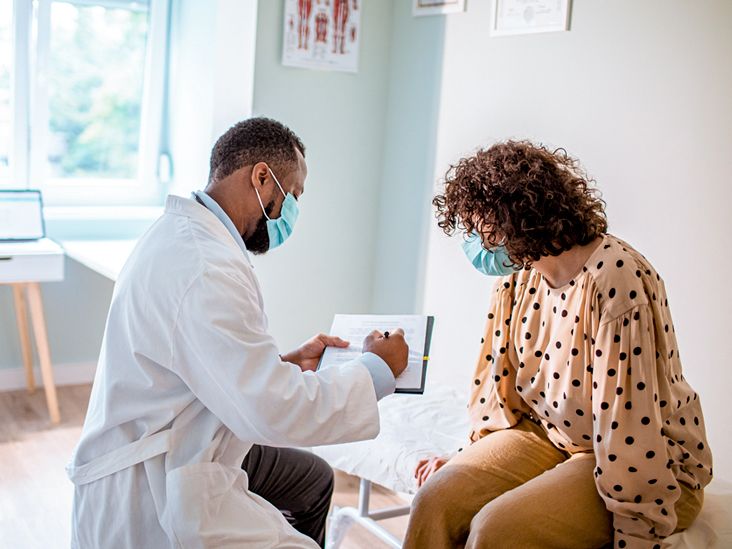Introduction
In the realm of healthcare, decision-making can be daunting. Patients often find themselves in a maze of medical jargon, treatment options, and expert opinions that can feel overwhelming. In such critical moments, the importance of second opinions cannot be understated. A second opinion serves not only as a safety net against potential misdiagnosis but also as a pathway to informed decision-making. This article explores The Importance of Second Opinions: Protecting Yourself from Negligence by delving into various aspects of seeking additional perspectives in medical care.
The Importance of Second Opinions: Protecting Yourself from Negligence
When it comes to your health, you deserve nothing less than the most accurate diagnosis and effective treatment plan. Unfortunately, healthcare professionals are human and can make mistakes—errors that could have dire consequences for patients. The significance of obtaining a second opinion lies in its ability to mitigate these risks.
For instance, studies show that nearly 12 million adults experience diagnostic errors in outpatient settings each year. These mistakes may result from various factors including misinterpretation of test results or overlooking crucial patient history. By seeking a second opinion, you not only confirm the original diagnosis but also explore alternative treatment options that might better suit your condition.
Furthermore, obtaining a second opinion can empower patients by providing them with additional information about their health status. Knowledge is power; understanding all available options allows individuals to make choices aligned with their values and preferences.
Why Seek a Second Opinion?
Confirming Diagnosis
Is the initial diagnosis accurate? This question often plagues patients after receiving troubling news. Consulting another specialist can confirm or refute the original diagnosis based on additional tests or interpretations.
Exploring Alternative Treatments
Every patient is unique, and so are their responses to treatment. A second expert could suggest alternative therapies that may be more effective or have fewer side effects than what was initially proposed.
Building Trust in Your Healthcare Provider
If your physician encourages you to seek a second opinion, it reflects their commitment to your well-being. This open-minded approach fosters trust and reinforces your confidence in their care.
Reducing Anxiety
Uncertainty breeds anxiety; obtaining a second opinion can alleviate this emotional burden by providing clarity about your condition and treatment options.
Avoiding Unnecessary Procedures
Some diagnoses may lead to invasive procedures that could have been avoided with further consultation. A fresh perspective might reveal less invasive alternatives.
Empowering Decision-Making
Ultimately, you are your best advocate when it comes to health decisions. Seeking multiple viewpoints empowers you to make informed choices regarding your care journey.
Common Myths About Second Opinions
Myth 1: Seeking a Second Opinion is Disrespectful
Many patients fear that requesting another doctor's viewpoint may offend their primary physician. In reality, most healthcare professionals understand the value of collaboration and encourage patients to seek additional advice for complex conditions.
Myth 2: It Delays Treatment
While it’s true that seeking a second opinion may take time, delaying treatment should be weighed against the benefit of receiving an accurate diagnosis and tailored treatment plan.
Myth 3: All Doctors Will Agree
It’s common for patients to assume that if they consult multiple doctors, they will eventually receive identical opinions. However, differing perspectives are natural due to variations in expertise and experiences among healthcare providers.
Myth 4: Only Serious Conditions Require Second Opinions
Regardless of whether you're dealing with a chronic illness or routine procedure, every medical situation warrants careful consideration—so never hesitate to seek further insight!

How To Approach Seeking A Second Opinion
Research Potential Specialists
Start by identifying experts who specialize in your specific condition or area of concern. Look for reputable clinics or hospitals known for excellence in your required specialty.
Ask Your Primary Doctor for Recommendations
Your primary physician may offer valuable suggestions regarding whom you should consult next; after all, they’re familiar with both your case and the medical community!

Prepare Questions Ahead of Time
Before attending your appointment, jot down questions you'd like answered during this visit—this ensures you're getting thorough insights on areas important to you.
Gather Medical Records
Providing comprehensive information about previous consultations enhances the new specialist's understanding while saving time during assessments—the more context they have on hand means better recommendations!
Navigating Insurance Issues
Understanding Your Insurance Policy
Before seeking a second opinion, familiarize yourself with how your insurance covers such consultations; some plans require pre-authorization while others may have specific networks where coverage applies.
Document Everything Carefully
Maintain meticulous records during this process—from referrals issued by physicians through bills incurred—all documentation will help prevent potential disputes later down the line!
Ask About Coverage Options Upfront
If there are financial concerns surrounding getting another assessment done—speak directly with billing departments regarding possible payment plans available for unexpected expenses incurred throughout this journey!
FAQs About Second Opinions
Q1: How do I ask my doctor for a second opinion?
It's best approached honestly; simply express any uncertainties you have about the diagnosis or recommended treatment plan—most doctors will appreciate knowing you're actively involved in decision-making!
Q2: Can I get a second opinion even if my doctor disagrees?
Absolutely! You have every right as a patient to seek multiple perspectives regardless of how supportive—or unsupportive—a given physician might feel toward this course-of-action!
Q3: What if both doctors disagree on diagnosis/treatment?
This scenario happens frequently; weigh both sides carefully before making an informed choice—it might even warrant consulting yet another specialist until clarity emerges!
Q4: Are there any disadvantages associated with seeking multiple opinions?
The main downside could involve delays when searching for another provider—but many believe waiting is worthwhile compared against potential errors made otherwise!
Q5: How long does it typically take before receiving feedback from specialists?
Response times vary widely depending upon individual practices’ schedules—but expect anywhere from several days up through weeks before hearing back regarding results received post-consultation!
Q6: What happens if I choose not follow original recommendations after pursuing additional insights?
https://www.moseleycollins.com/east-los-angeles-ca-medical-malpractice-lawyer-hospital-negligen.htmlThat's entirely within each patient’s rights! Ultimately remembering it's YOUR health at stake allows peace-of-mind knowing decisions ultimately lie solely upon personal discretion moving forward towards recovery goals set forth accordingly.
Conclusion
The importance of seeking a second opinion cannot be overstated when navigating complex healthcare decisions; doing so acts as an essential safeguard against negligence while empowering patients within their respective journeys towards wellness! With countless cases demonstrating diagnostic errors occurring daily—taking proactive steps ensures individuals remain informed advocates throughout their paths ahead.
Ultimately remember—the road toward recovery often requires collaboration between practitioners along-with diligence shown firsthand by those affected most directly through challenges faced daily.
In navigating healthcare’s intricate landscape—trust becomes invaluable between both parties involved! So don’t hesitate; reach out today whenever doubt arises regarding current treatments suggested alongside relentless pursuit towards excellence ensuring optimal outcomes achieved over time!
In summary—the importance of second opinions stands clear through evidence presented above affirmatively underscoring protective measures taken surrounding overall health safety alongside mindful development seen throughout our lives collectively embraced together each step forward made strong!